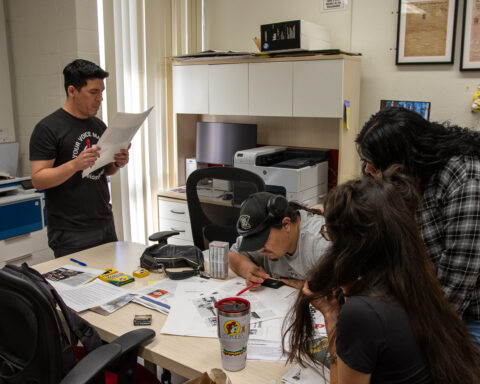Let’s talk about what’s going right.
This spring, struggling students are finally getting the resources and visibility they deserve. Programs and clubs such as the U2 Scholars, EOPS, Gender Sexuality Alliance, UndocuScholars and MESA are hosting their own separate graduations. OCTA is giving students discounted bus passes. Project Rise has grown to 40 members.
As the majority on this campus, Latino students are disproportionately impacted.
It is vital that our students have the resources they need to succeed in higher education.
At el Don, it’s not only about reporting on our problems but also about the responses to those problems.
Upon opening any media platform, viewers are flooded with the latest tragic event, environmental disaster and stories that leave us with nothing but a pit in our stomach and the question: what can we do about it?
It is important to stay informed, but also to give hope.
At the beginning of this school year, el Don received a Solutions Journalism grant that paved the way for us to report on solutions already within our community.
The Solutions Journalism framework features a response to a problem, provides evidence of effectiveness, includes insights and discusses limitations to the response.
Using the SoJo lens helps us as reporters tell the whole story, honor the truth and provide a fuller picture–complicating the narrative.
What we saw this semester are great responses. But they are short-term solutions to long-term problems.
Graduation is only a one-day thing. Bus passes expire. Clubs are in need of a designated space to continue providing for underrepresented groups on campus.
While this year gave us hope, we need long-term solutions that will ultimately garner more success for students.
- Here’s what’s inside el Don’s 2025 spring issue - May 28, 2025
- Ash’s Opinions – Column – ACP Entry - May 22, 2025
- Nico’s Film Notes – 1G Column – ACP Entry - May 22, 2025
















